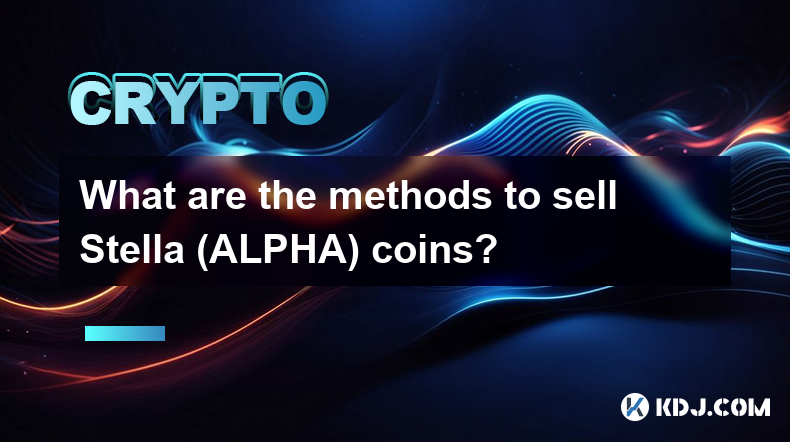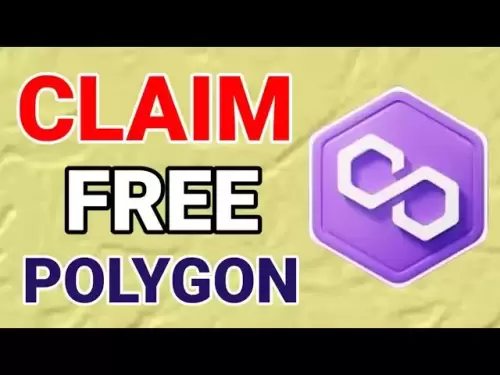-
 Bitcoin
Bitcoin $106,754.6083
1.33% -
 Ethereum
Ethereum $2,625.8249
3.80% -
 Tether USDt
Tether USDt $1.0001
-0.03% -
 XRP
XRP $2.1891
1.67% -
 BNB
BNB $654.5220
0.66% -
 Solana
Solana $156.9428
7.28% -
 USDC
USDC $0.9998
0.00% -
 Dogecoin
Dogecoin $0.1780
1.14% -
 TRON
TRON $0.2706
-0.16% -
 Cardano
Cardano $0.6470
2.77% -
 Hyperliquid
Hyperliquid $44.6467
10.24% -
 Sui
Sui $3.1128
3.86% -
 Bitcoin Cash
Bitcoin Cash $455.7646
3.00% -
 Chainlink
Chainlink $13.6858
4.08% -
 UNUS SED LEO
UNUS SED LEO $9.2682
0.21% -
 Avalanche
Avalanche $19.7433
3.79% -
 Stellar
Stellar $0.2616
1.64% -
 Toncoin
Toncoin $3.0222
2.19% -
 Shiba Inu
Shiba Inu $0.0...01220
1.49% -
 Hedera
Hedera $0.1580
2.75% -
 Litecoin
Litecoin $87.4964
2.29% -
 Polkadot
Polkadot $3.8958
3.05% -
 Ethena USDe
Ethena USDe $1.0000
-0.04% -
 Monero
Monero $317.2263
0.26% -
 Bitget Token
Bitget Token $4.5985
1.68% -
 Dai
Dai $0.9999
0.00% -
 Pepe
Pepe $0.0...01140
2.44% -
 Uniswap
Uniswap $7.6065
5.29% -
 Pi
Pi $0.6042
-2.00% -
 Aave
Aave $289.6343
6.02%
What are the methods to sell Stella (ALPHA) coins?
Selling Stella (ALPHA) coins on a centralized exchange like Binance offers high liquidity and trading volume, making it a popular choice with support for varied payment options.
Dec 24, 2024 at 08:10 am

Key Points:
- Understand the different methods available for selling Stella (ALPHA) coins.
- Advantages and disadvantages associated with each method.
- Choosing the most suitable method based on individual circumstances and preferences.
Methods to Sell Stella (ALPHA) Coins:
1. Centralized Exchanges:
- Binance: Leading cryptocurrency exchange with high trading volume and liquidity for ALPHA. Supports various payment methods, including fiat currencies and cryptocurrencies.
- Gate.io: Global exchange with a wide selection of cryptocurrencies, including ALPHA. Offers multiple trading pairs and competitive fees.
- OKX: Renowned exchange known for its security and reliability. Supports ALPHA trading in multiple fiat and cryptocurrency markets.
- Huobi Global: Long-established exchange with a robust platform and competitive trading fees. Provides a user-friendly interface for selling ALPHA.
- Bithumb: South Korean exchange with a significant presence in the region. Offers ALPHA trading against various fiat and cryptocurrencies.
2. Decentralized Exchanges:
- Uniswap: Non-custodial DEX operating on the Ethereum blockchain. Enables direct peer-to-peer trading of ALPHA against ETH and other ERC-20 tokens.
- PancakeSwap: Decentralized exchange built on Binance Smart Chain. Offers ALPHA trading against BNB and other BEP-20 tokens, with lower gas fees compared to Uniswap.
- SushiSwap: DEX similar to Uniswap, also operating on the Ethereum blockchain. Provides liquidity pools where users can swap ALPHA for ETH and other cryptocurrencies.
3. Peer-to-Peer Marketplaces:
- LocalBitcoins: Enables direct trading with other individuals in your local area. Offers a wide range of payment options and allows for negotiation of exchange rates.
- Paxful: Similar to LocalBitcoins, but with a broader global reach. Supports multiple payment methods, including cash, gift cards, and mobile money.
- Bisq: Decentralized peer-to-peer marketplace where users can trade ALPHA without the need for intermediaries. Transactions are secured through a decentralized escrow system.
4. Brokers:
- Coinbase: User-friendly and reputable broker that allows users to buy, sell, and store ALPHA. Supports multiple payment methods, including bank transfers and credit/debit cards.
- Kraken: Long-established broker known for its security and compliance. Offers various trading options, including margin trading and over-the-counter (OTC) deals for large volumes.
- Gemini: Regulated broker that provides a secure platform for trading ALPHA. Boasts high liquidity and competitive trading fees.
FAQs:
Q: What are the trading fees associated with selling ALPHA on exchanges?
A: Trading fees vary based on the exchange and type of order placed. Typically, centralized exchanges charge fees in the range of 0.1-0.5%, while decentralized exchanges may have higher fees due to network congestion.
Q: How long does it take to sell ALPHA on an exchange?
A: The time required to sell ALPHA on an exchange depends on the market liquidity and order size. Market orders are generally executed almost instantly, while limit orders may take longer to fill depending on the specified price.
Q: Is it possible to sell ALPHA anonymously?
A: Most exchanges require users to go through a know-your-customer (KYC) process, which means providing personal information for identity verification. However, peer-to-peer marketplaces offer more anonymity as they do not require KYC.
Q: What factors should I consider when choosing a method to sell ALPHA?
A: Consider factors such as trading fees, liquidity, security measures, supported payment methods, and the level of anonymity desired. Different methods may suit different needs and preferences.
Disclaimer:info@kdj.com
The information provided is not trading advice. kdj.com does not assume any responsibility for any investments made based on the information provided in this article. Cryptocurrencies are highly volatile and it is highly recommended that you invest with caution after thorough research!
If you believe that the content used on this website infringes your copyright, please contact us immediately (info@kdj.com) and we will delete it promptly.
- Ethereum Price Expectations: Stuck in Neutral or Ready to Rumble?
- 2025-06-20 02:45:13
- Bitcoin's Rally Stalls? AI Tokens Like RUVI & OZAK Steal the Show
- 2025-06-20 02:45:13
- Story Crypto Price Down Today: What's Going On?
- 2025-06-20 02:50:12
- Little Pepe, Meme Coins, and Shiba Inu: What's the Buzz in the Crypto Jungle?
- 2025-06-20 03:10:12
- Troller Cat: The Meme Coin Rickrolling Its Way to ROI Riches
- 2025-06-20 03:25:12
- DePIN, Shared Infrastructure, New Era: Building the Future, Together
- 2025-06-20 02:25:12
Related knowledge

How to customize USDT TRC20 mining fees? Flexible adjustment tutorial
Jun 13,2025 at 01:42am
Understanding USDT TRC20 Mining FeesMining fees on the TRON (TRC20) network are essential for processing transactions. Unlike Bitcoin or Ethereum, where miners directly validate transactions, TRON uses a delegated proof-of-stake (DPoS) mechanism. However, users still need to pay bandwidth and energy fees, which are collectively referred to as 'mining fe...

USDT TRC20 transaction is stuck? Solution summary
Jun 14,2025 at 11:15pm
Understanding USDT TRC20 TransactionsWhen users mention that a USDT TRC20 transaction is stuck, they typically refer to a situation where the transfer of Tether (USDT) on the TRON blockchain has not been confirmed for an extended period. This issue may arise due to various reasons such as network congestion, insufficient transaction fees, or wallet-rela...

How to cancel USDT TRC20 unconfirmed transactions? Operation guide
Jun 13,2025 at 11:01pm
Understanding USDT TRC20 Unconfirmed TransactionsWhen dealing with USDT TRC20 transactions, it’s crucial to understand what an unconfirmed transaction means. An unconfirmed transaction is one that has been broadcasted to the blockchain network but hasn’t yet been included in a block. This typically occurs due to low transaction fees or network congestio...

What to do if USDT TRC20 transfers are congested? Speed up trading skills
Jun 13,2025 at 09:56am
Understanding USDT TRC20 Transfer CongestionWhen transferring USDT TRC20, users may occasionally experience delays or congestion. This typically occurs due to network overload on the TRON blockchain, which hosts the TRC20 version of Tether. Unlike the ERC20 variant (which runs on Ethereum), TRC20 transactions are generally faster and cheaper, but during...

The relationship between USDT TRC20 and TRON chain: technical background analysis
Jun 12,2025 at 01:28pm
What is USDT TRC20?USDT TRC20 refers to the Tether (USDT) token issued on the TRON blockchain using the TRC-20 standard. Unlike the more commonly known ERC-20 version of USDT (which runs on Ethereum), the TRC-20 variant leverages the TRON network's infrastructure for faster and cheaper transactions. The emergence of this version came as part of Tether’s...

How to monitor large USDT TRC20 transfers? Tracking tool recommendation
Jun 12,2025 at 06:49pm
Understanding USDT TRC20 TransfersTether (USDT) is one of the most widely used stablecoins in the cryptocurrency ecosystem. It exists on multiple blockchains, including TRON (TRC20). The TRC20 version of USDT operates on the TRON network and offers faster transaction speeds and lower fees compared to its ERC-20 counterpart on Ethereum. When discussing l...

How to customize USDT TRC20 mining fees? Flexible adjustment tutorial
Jun 13,2025 at 01:42am
Understanding USDT TRC20 Mining FeesMining fees on the TRON (TRC20) network are essential for processing transactions. Unlike Bitcoin or Ethereum, where miners directly validate transactions, TRON uses a delegated proof-of-stake (DPoS) mechanism. However, users still need to pay bandwidth and energy fees, which are collectively referred to as 'mining fe...

USDT TRC20 transaction is stuck? Solution summary
Jun 14,2025 at 11:15pm
Understanding USDT TRC20 TransactionsWhen users mention that a USDT TRC20 transaction is stuck, they typically refer to a situation where the transfer of Tether (USDT) on the TRON blockchain has not been confirmed for an extended period. This issue may arise due to various reasons such as network congestion, insufficient transaction fees, or wallet-rela...

How to cancel USDT TRC20 unconfirmed transactions? Operation guide
Jun 13,2025 at 11:01pm
Understanding USDT TRC20 Unconfirmed TransactionsWhen dealing with USDT TRC20 transactions, it’s crucial to understand what an unconfirmed transaction means. An unconfirmed transaction is one that has been broadcasted to the blockchain network but hasn’t yet been included in a block. This typically occurs due to low transaction fees or network congestio...

What to do if USDT TRC20 transfers are congested? Speed up trading skills
Jun 13,2025 at 09:56am
Understanding USDT TRC20 Transfer CongestionWhen transferring USDT TRC20, users may occasionally experience delays or congestion. This typically occurs due to network overload on the TRON blockchain, which hosts the TRC20 version of Tether. Unlike the ERC20 variant (which runs on Ethereum), TRC20 transactions are generally faster and cheaper, but during...

The relationship between USDT TRC20 and TRON chain: technical background analysis
Jun 12,2025 at 01:28pm
What is USDT TRC20?USDT TRC20 refers to the Tether (USDT) token issued on the TRON blockchain using the TRC-20 standard. Unlike the more commonly known ERC-20 version of USDT (which runs on Ethereum), the TRC-20 variant leverages the TRON network's infrastructure for faster and cheaper transactions. The emergence of this version came as part of Tether’s...

How to monitor large USDT TRC20 transfers? Tracking tool recommendation
Jun 12,2025 at 06:49pm
Understanding USDT TRC20 TransfersTether (USDT) is one of the most widely used stablecoins in the cryptocurrency ecosystem. It exists on multiple blockchains, including TRON (TRC20). The TRC20 version of USDT operates on the TRON network and offers faster transaction speeds and lower fees compared to its ERC-20 counterpart on Ethereum. When discussing l...
See all articles

























































































